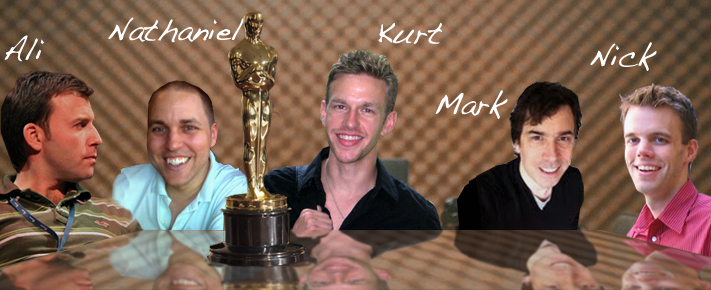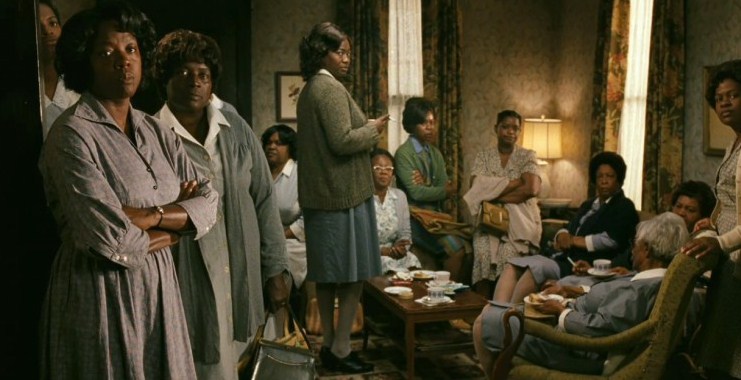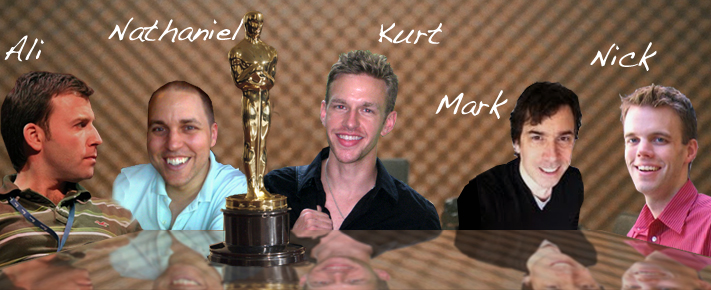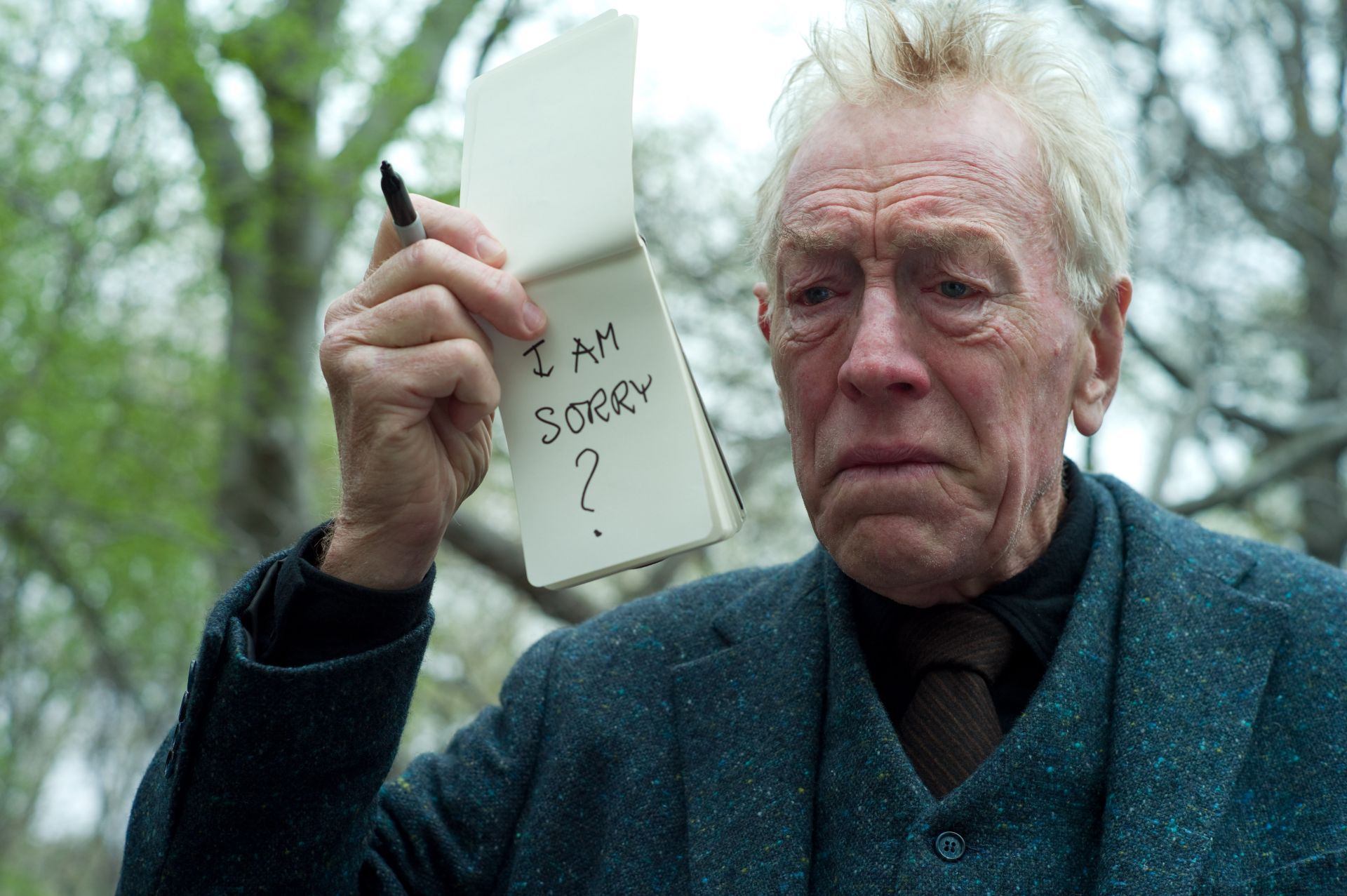Oscar Symposium Day 3: Farewells and Futures
 Friday, February 3, 2012 at 9:30PM
Friday, February 3, 2012 at 9:30PM On Day 1 of the symposium we partied with the Best Picture field and considered Star Vehicles. On Day 2 we discussed movies that are hopelessly in love with themselves (to good and bad effect), the forever contentious Lead vs Support debate, the invisible arts of editing and screenwriting. We pick up there. Nathaniel was admitting he wasn't entirely comfortable falling for Margaret....
 Nader & Simin: A SeparationNATHANIEL: I've scraped my knees up on cold hard pavement. I too was caught up in #TeamMargaret excitement. I love it when critics remember that part of their job is to advocate for buried treasure rather than merely rubber stamping the critical darlings over and over again (Did Michelle Williams really need to hog the majority of critics awards for My Week With Marilyn, which is straight down the middle awards bait? They didn't see anything off the golden path that was worthy of praise?). But when I finally saw Margaret, I left somewhat dejected. There's a lot to love. But there is also just an awful lot. It plays, to me, like a series of brilliant pieces that haven't quite been shaped to fit the genius-level mosaic they're intended for. Or maybe I was just thrown by the length and those phone calls to daddy. Lonergan is a brilliant writer but a brilliant actor not so much.
Nader & Simin: A SeparationNATHANIEL: I've scraped my knees up on cold hard pavement. I too was caught up in #TeamMargaret excitement. I love it when critics remember that part of their job is to advocate for buried treasure rather than merely rubber stamping the critical darlings over and over again (Did Michelle Williams really need to hog the majority of critics awards for My Week With Marilyn, which is straight down the middle awards bait? They didn't see anything off the golden path that was worthy of praise?). But when I finally saw Margaret, I left somewhat dejected. There's a lot to love. But there is also just an awful lot. It plays, to me, like a series of brilliant pieces that haven't quite been shaped to fit the genius-level mosaic they're intended for. Or maybe I was just thrown by the length and those phone calls to daddy. Lonergan is a brilliant writer but a brilliant actor not so much.
And maybe I was still just high on A Separation (my choice for Best of the Year) which illuminates a bit of the same ground in terms of personal actions creating ripples that we can't possibly grasp the full reach of. And they both show us how flawed people (i.e. all of us) can get tangled up in very difficult moral, social, religious, political and ethical webs they probably helped spin.
KURT: I'm glad you brought up that comparison between A Separation and Margaret, because it's definitely something I was thinking about while watching the latter (in between all the reveling in how Lisa initiates an allegorical, post-9/11 war that's ultimately futile and only reaps money for people who don't deserve it). Though vastly different in structure (one drum-tight, one manic and sprawling), these two scripts hold a lot of similarities, and are, in my opinion, at the tip-top of the year's best.
I'm also glad that Mark brought up Margin Call and Tinker Tailor in the same thought bubble because I found myself linking those two in my head a lot as well. Both films are essentially corporate dramas with power players coping with crisis, and both teem with a kind of impenetrable language you really have to crack. I hail from the team that doesn't really buy all the "Speak to Me Like a Golden Retriever" crap, because A) I don't believe those folks would actually expositionally coddle each other, or need coddling, in that way, and B), as mentioned, the movie keeps promising through dialogue that it's clearing things up, when it's really just thickening its fog of jargon. I do believe Chandor took a highly commendable crack at presenting this world, and I don't know if I've seen anyone do it better in terms of writing (Oliver Stone certainly didn't), but there's a lot of pretense about those scenes that irks me. (I prefer his small details, like the gross arrogance the company shows by firing Tucci's head risk manager, and little shots like the one of Demi and Simon Baker in the elevator with the cleaning lady.)
 ...and we've reentered MI6 where we began!
...and we've reentered MI6 where we began!
As for Tinker Tailor, there isn't a lick of coddling, just a glimpse into a radically rarefied world, filled with so much code talk, names and lingo it's like Tolkien does MI6.
Symposium Wraps with Bridesmaids, eye candy and film futures after the jump.








